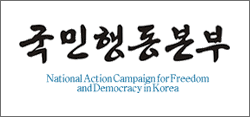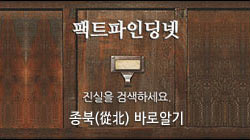(English version is below.)
.
오늘 이야기는 삿포로 식당에서 만난 싱가포르인 부부(夫婦) 얘기다. 그것도 우연히 이틀 연속 점심 때 같은 식당에서 만났다. 여행 중 수 많은 외국인을 만나 대화를 나눴지만, 오늘 만난 부부는 매우 드문 경우다. 우선 우리 부부와 동갑(同甲)내기란 점이 그렇고, 두 분 다 평생 고위 공직(公職)을 지낸 분들이란 점이 그랬다. 한 분은 싱가포르 교육부 교육국장을, 또 한 분은 통상산업부 연구원이었다. 주로 나눈 얘기는 교육, 특히 영어 교육에 관한 것과 여행을 포함한 정치에 관한 것이었다.
.
우리는 삿포로 시내의 식당가를 걷다 한 ‘스시(초밥)’ 식당 앞에 멈췄다. ‘런치스페셜’ 메뉴가 그럴 듯해서였다. 일단 들어갔다. ‘회전초밥집’이 아닌 일본의 전통적 ‘스시집’이었다. 오픈형 주방과 맞붙은 상당히 길게 뻗은 형태의 식탁(바 테이블형)에 줄줄이 앉으면 바로 앞에서 초밥 요리사가 주문받은 스시를 만들어 건네주는 구조다. 식탁 뒤쪽엔 크고 작은 방들도 여럿 있었다. 그러나 어느 쪽을 봐도 일본 특유의 분위기다. 대중식당임에도 조용조용 소곤소곤 속삭이듯 대화를 나누지 크게 말하는 사람은 없었다. 유일한 큰 목소리는 손님의 주문을 받아 주방에 알려주는 종업원의 목소리뿐이었다.
.
다들 식사 중이었다. 그때 바로 내 옆에 앉은 남자가 주방을 향해 영어로 “Excuse me. I want more wasabi, please.”라고 했다. 그는 일본인이 아니란 뜻이었다. 용모(容貌)를 봐 한국인은 더더욱 아니었다. 중국인이 그렇게 점잖게 말하는 걸 본 적이 없으니 중국인도 아니었다. 그렇다면 대만인? 내가 바로 물었다. “Hi, I’m from Seoul. You from?” 의외의 답이 돌아왔다. 그들은 싱가포르에서 왔다. 알고 보니 그들도 부부 배낭여행자였다.
.
일단 말 문이 트이자 이분보다 옆에 앉은 그의 부인이 더 적극적으로 나섰다. 마치 오랜 친구를 만난 듯 반기며 자신들을 소개하기 시작했다. 영어에 막힘이 없었다. 둘 다 35년 공직 생활을 마친 뒤 한 번도 해본 적이 없는 완전 자유 부부 배낭여행을 시작했다는 것. 그런데 그것이 계획대로 잘 안된다며 마치 하소연하듯이 털어놓았다. 그러면서 우리의 여행 경력을 물었다. 부부 배낭여행에 대한 애착(愛着)과 집념(執念)이 대단해 보였다.
.
그때 조용히 듣고 있던 남편이 나섰다. 자기 아내와 자신의 직업을 소개했다. 자기 아내는 평생을 교육부에서 국장으로, 자신은 통상산업부 연구원으로 지냈다며 비교적 자세히 설명했다. 그의 말과 표정에는 자부심(自負心)이 실려 있었다. 둘 다 각각 공무상 외국 출장을 다녀 봤지만, 부부가 함께하는 자유로운 세계 여행을 한 번도 못 해봤다고 했다. 건강이 허락하는 한 세계 여행을 계속할 생각이지만 역시 자기 아내가 말한 대로 그게 그렇게 쉽지 않다고 했다.
.
나는 그분들이 듣고 싶어 하는 우리의 여행 이야기는 뒤에 하기로 하고, 내가 듣고 싶은 것을 먼저 물었다. 그녀는 싱가포르 교육부 국장이었다
.
나의 질문:
1) 1984년, 나는 스위스의 어느 게스트하우스에서 만난 세 명의 대만인 젊은이들이 줄곧 영어로만 대화하는 걸 보고 그 이유를 물었더니 자기들은 어릴 적부터 영어를 배운다고 해서 매우 부러워했던 적이 있습니다. 그에 대한 설명을 듣고 싶습니다.
2) 대만의 공식 공용어는 무엇입니까?
3) 한국에도 1990년대, 세계화에 발맞춰 영어 공용화론이 제기된 적이 있었지만 제대로 된 공개토론 한번 없이 무산된 적이 있습니다. 이에 대한 조언을 구하고 싶은데요?
4) 한국인들은 영어의 중요성을 인정하면서도 조기 영어 교육엔 반대합니다. 어린이에게 정체성의 혼란 등을 일으킬 위험성이 있다는 이유입니다. 당신의 견해는?
.
그녀의 답:
1) 싱가포르는 언어 교육을 매우 중시합니다. 이중언어를 가르치는 이유입니다. 학생들은 영어는 기본이고 중국어, 말레이어, 타밀어 중 하나를 제2 언어로 배워야 합니다. 다문화 사회인 싱가포르를 위해서도 그렇지만 세계화 시대의 경쟁력과 생존 전략에도 필수이기 때문입니다. 가장 중요한 국가 정책 중 하나입니다. 싱가포르인들이 세계 어디를 가나 영어를 영어 원어민처럼 자유롭게 사용할 수 있도록 하는 것이 목표입니다.
2) 싱가포르에는 하나의 국어는 없습니다. 앞에서 말했듯이 대신 싱가포르에서 공식적으로 인정하는 네 개의 공용어가 있을 뿐입니다. 영어, 중국어, 타밀어, 말레이어입니다.
3) 글쎄요. 어려운 질문입니다. 나라마다 다르니까요. 특히 국민의 정서가 그렇습니다. 우리나라도 초기에 그랬습니다만, 그러나 역시 최고 지도자의 결단이 중요한 것 같습니다.
4) 물론 이에 대한 학설은 많지만, 우리 정부는 처음부터 ‘결정적 시기(決定的時期)’라는 학설을 채택해 지금까지 계속하고 있습니다. 말하자면, 어린이의 두뇌 발달의 과정에 따라 모국어 또는 외국어를 습득하는 데 이상적인 시기가 엄존한다는 것입니다. 이를 간단히 증명할 수 있어요. 어린이가 성인보다 모국어든 영어든 언어를 배우고 익히는데 훨씬 유리하다는 것입니다. 우리 부부도 영어 발음이 별로인 것은 어릴 때 말하는 영어를 배울 기회를 놓쳤기 때문이다. 암튼, 이 '결정적 시기(어릴적)'에 외국어를 배우면, 성인이 되어 배울 때 가장 헷갈리고 부담되는 복잡한 문법과 발음에 대한 부담이 없습니다. 그냥 직관적으로 언어(영어) 그 자체를 흡수해 버리니까요. <계속>
.
감사합니다.
.

People met on my backpacking 208 -
Today's story involves a Singaporean couple we met in a Sapporo restaurant. We happened to meet them at the same place for lunch on two consecutive days. Throughout my world trip, it's been very unusual. First, they were the same age as my couple. They had both spent their whole careers working in high-level government positions. One was the director of education at Singapore's Ministry of Education, while the other was a researcher at the Ministry of Trade and Industry. Our major topics of discourse were education, particularly English education, and politics, which included travel.
We paused in front of a sushi restaurant while going down the street in Sapporo. The menu for "lunch special" was excellent. We entered the restaurant temporarily. The restaurant served traditional Japanese sushi. The dining table was unusually long and faced the open kitchen. A sushi chef prepares and serves the sushi requested by the client right in front of them. Despite being a crowded restaurant, everyone spoke gently and softly. Nobody spoke loudly. The only loud voice was that of the waitress, who received the customer's orders and reported them to the kitchen.
Everyone was enjoying their meals. The man seated next to me then remarked to the cook in English, "Excuse me. I would like more wasabi, please." He meant he wasn't Japanese. He looked nothing like a Korean. I've never seen a Chinese talk so gently. He was not even Chinese. Then who? Taiwanese? I asked him right away, "Hello, I'm from Seoul. You from?" The unexpected reply came back. They were from Singapore. It turned out they were also couples backpacking. What a coincidence!
When I began chatting, his wife became more active than him. She greeted us as if she were meeting an old friend and proceeded to introduce herself. Her English was good. She stated that after 35 years of public service, they undertook a fully free backpacking trip, something they had never done before. But she complained that things did not proceed as planned. She inquired about our trip background. She seemed that she wanted to have a strong relationship to travelers all over the world.
The spouse, who had been silently listening, remarked. He presented her job. He detailed how his wife had spent the most of her life as a director general in the Ministry of Education and he as a researcher in the Ministry of Trade and Industry. He seemed proud of themselves. He stated that each of his couples had gone on formal work trips overseas, but they had never traveled freely throughout the world. He stated that he intended to continue enjoying the world freely with his wife as long as his health permitted.
I decided to discuss our world backpacking later and asked them what I wanted to hear first. I felt as if I were addressing the director of Singapore's education department personally.
My questions:
1) In 1984, I witnessed three Taiwanese young guys who gathered in a Swiss hostel and spoke only in English. When I inquired why, they said that they always spoke in English. Would you tell me about it?
2) What is the official language of Taiwan?
3) In the 1990s, in conjunction with globalization, the notion of common use of English was proposed in Korea, but it failed due to a lack of thorough public discussion. I'd want to hear your thoughts on this.
4) Koreans understand the value of English but oppose early English instruction. This is due to the possibility of youngsters becoming confused about their identities. What are your opinion on this?
Her responses:
1) The Singaporean government prioritizes language instruction. This explains why bilingualism is taught. Students must acquire basic English as well as one of the following second languages: Chinese, Malay, or Tamil. This is because it is essential for Singapore, a multicultural nation, as well as competitiveness and survival tactics in the age of globalization. It is among the most essential national policies. The objective is to ensure that Singapore people may speak English as freely as native English speakers wherever they travel across the world.
2) There is no one language in Singapore. As previously stated, only four official languages are officially recognized in Singapore. They are English, Chinese, Tamil, and Malay.
3) That's a hard question. It differs by nation. Especially the feeling of the people. Singapore was like this in the beginning, but I believe the supreme leader's choice is the most crucial.
4) There are other ideas concerning this, but the Singaporean government has consistently followed the 'critical period theory’ from the beginning. This is because there is an optimal period to learn a mother tongue or a foreign language based on a child's brain development.
I can easily verify this. Children are significantly better at acquiring a language than adults, whether it is their native tongue or English. My spouse and I have an unusual English pronunciation since we did not learn English conversation when we were younger. Anyway, learning a foreign language is far simpler at this 'critical period theory’ than it is later in life. Children learn languages instinctively.
Thanks for reading.












 bestkorea(회원)
bestkorea(회원)







 트위터
트위터 페이스북
페이스북 미투데이
미투데이 요즘
요즘 네이버
네이버
































